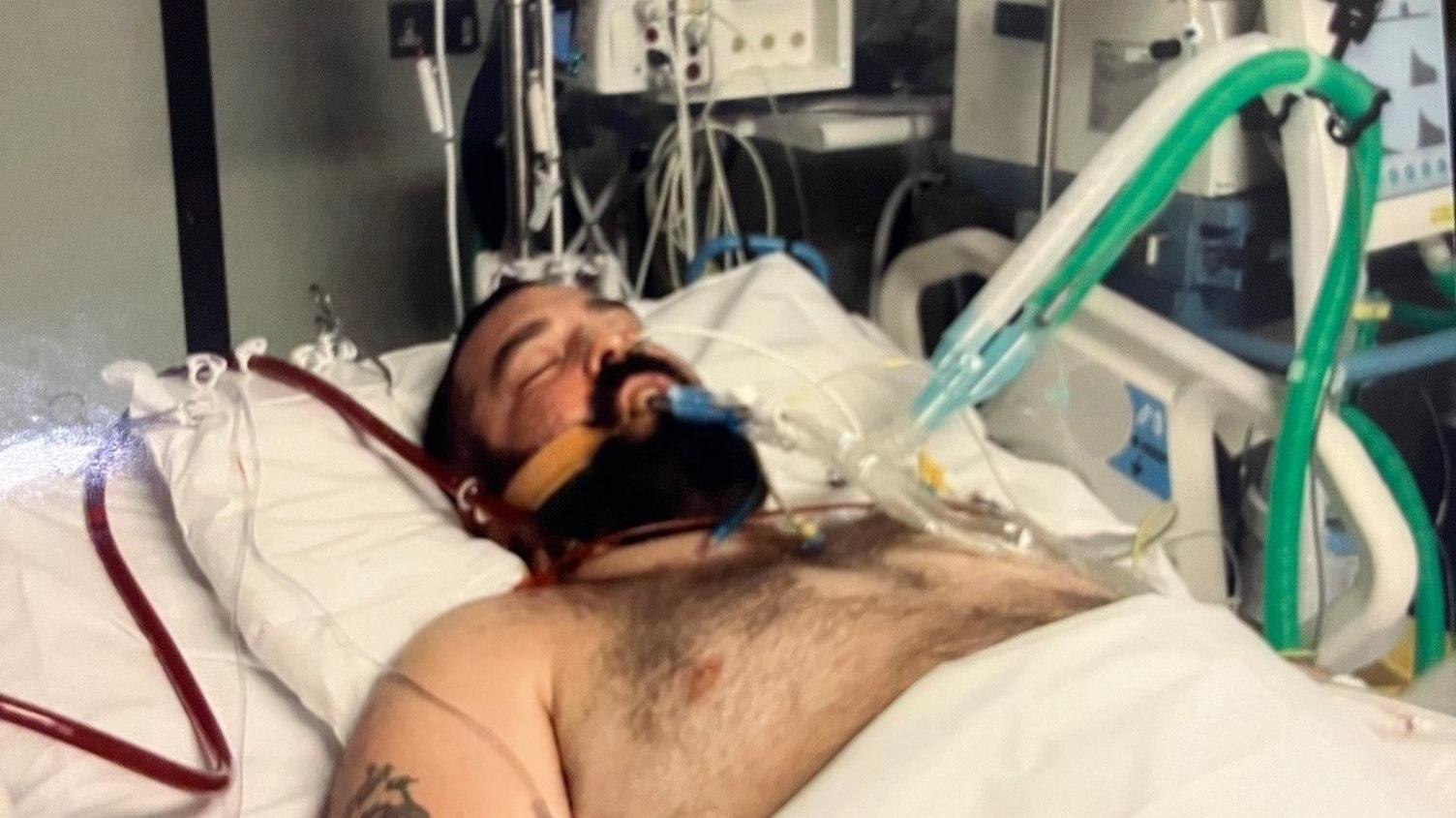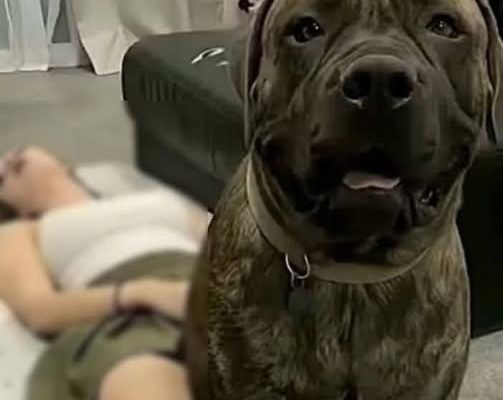When 22-year-old Joven arrived at the emergency department late one evening, doctors immediately knew something was wrong. He was exhausted, shaken, and in visible distress — the kind that signals both physical pain and overwhelming fear. Medical staff acted quickly, stabilizing him as he winced with every breath. What happened to him was not clear in that moment, but one fact was: someone had harmed him, and he needed urgent care.
Early assessments showed internal injuries requiring close monitoring. Though serious, they were treatable. The bigger challenge — the one that would take far longer than any physical wound to heal — was the emotional shock that had left him feeling unsafe, disoriented, and unsure of what would come next.
For the first few hours, his only words were soft, almost whispered:
“I just want to go home.”
The Medical Response

Doctors and nurses worked steadily, focusing on stabilizing his injuries and easing his pain. As he began to relax, specialists joined the team — trauma counselors, psychologists, and patient advocates. Together, they formed a support network around him, knowing that harm of this nature affects both body and mind.
Hospital staff emphasized privacy and dignity. They explained every step — the scans, the treatments, the medication — making sure Joven understood he was no longer alone, and that he was safe.
One counselor later recalled,
“He needed reassurance just as much as medical treatment. Healing starts the moment someone tells you that you’re believed.”
The Beginning of an Investigation

By the next morning, Joven was able to describe fragments of the events that led him to seek help. While the details remain confidential out of respect for his privacy, authorities confirmed that the harm came from another individual and involved behavior that violated both his boundaries and his safety.
Local police opened an inquiry immediately. Officers visited the hospital to speak with Joven in a calm, supportive environment, making sure he felt in control of the conversation. They gathered preliminary information and began searching for witnesses, camera footage, and individuals who might have knowledge of what happened.
A spokesperson for the police department stated:
“Our priority is ensuring the victim’s safety and well-being. The investigation will continue until we determine the full circumstances.”
A Family’s Fear — And Their Relief
For Joven’s family, the news was a storm of emotions. They rushed to the hospital, frightened by what they might find, but relieved to see him awake and speaking. Still, the worry on their faces was unmistakable. His mother held his hand every time a doctor stepped into the room, bracing herself for updates.
In a short statement, the family asked for privacy and thanked the community for the outpouring of concern. Behind closed doors, they focused entirely on helping Joven feel supported, loved, and protected.
His sister later said,
“The hardest part was seeing him so quiet. He’s usually the loudest voice in the room. We just wanted him to feel like himself again.”
The Emotional Aftermath

Situations like the one Joven faced often leave survivors grappling with confusion, fear, or guilt — even when they’ve done nothing wrong. Trauma specialists emphasized that emotional recovery is often more complex than treating physical injuries.
Counselors encouraged him to speak at his own pace. They helped him understand that healing is not a straight line — some days feel strong, others overwhelming. They reassured him that seeking help was an act of courage.
Over time, Joven began participating in short therapy sessions focused on grounding techniques, self-awareness, and rebuilding a sense of security. Slowly, he began to ask questions about recovery, coping, and next steps — small signs of resilience returning to him.
Support From the Community
When news of the incident spread, the community responded with compassion. Neighbors sent messages wishing him strength and healing. A local youth organization offered free counseling sessions for anyone affected by violence or harmful behavior. Teachers from his former school reached out, checking in on the family.
One message, from a former coach, read:
“You’re stronger than this moment. We’re all behind you.”
Although encouraging, the attention was also emotionally heavy for the family. They chose to keep most of their conversations private, focusing on surrounding Joven with steady support rather than letting the spotlight add pressure.
The Larger Conversation About Safety
While the investigation continued, local leaders used the moment to highlight the importance of:
-
recognizing warning signs
-
speaking up when feeling unsafe
-
offering support to survivors
-
emphasizing consent and boundaries in all interactions
Health professionals also used the opportunity to remind the public that no one should ever feel ashamed for seeking help, and that hospitals treat trauma patients with respect, privacy, and care.
A hospital representative noted:
“Early medical attention can prevent complications, and early emotional support can prevent long-term psychological harm.”
Joven’s Path Forward
As days turned into weeks, Joven made steady progress. His physical injuries began healing, and he gradually resumed simple routines — eating meals with his family, listening to music, watching basketball. These small steps carried enormous significance.
In therapy, he learned coping skills to manage anxiety and moments of fear. Counselors encouraged him to rebuild at his own pace, reminding him that recovery does not require perfection — only persistence.
One afternoon, after a counseling session, he told his mother:
“I think I’m ready to try again. I don’t want this to define me.”
It was the first time he had spoken with that level of clarity and strength since the incident.
The Investigation Continues
Police remain committed to understanding all aspects of the incident. They are gathering additional evidence, speaking with individuals connected to the case, and collaborating with legal authorities to ensure that Joven’s rights — and the truth — are protected.
Officials emphasized that they will proceed carefully and thoroughly, ensuring fairness while prioritizing the survivor’s safety.
A Message of Awareness and Hope
Joven’s story reflects a broader reality: harmful interactions can happen unexpectedly, even to those who feel prepared, cautious, or aware of their surroundings. His experience has sparked discussions about safety, awareness, communication, and support systems.
Yet, it also highlights something just as powerful: the strength of survivors, the importance of immediate care, and the impact of a community that chooses compassion over judgment.
For Joven, healing remains an ongoing journey — one filled with challenges, setbacks, and victories. But he is surrounded by family, counselors, medical staff, and a community determined to see him rise again.
And as he continues moving forward, he hopes his experience will encourage others to speak up when something feels wrong and to seek help without hesitation.
Sources
-
Trauma recovery guidelines from medical associations
-
Public health resources on survivor support
-
Counseling frameworks for emotional healing
-
Hospital best practices in trauma care
-
Research on community support and recovery outcomes



